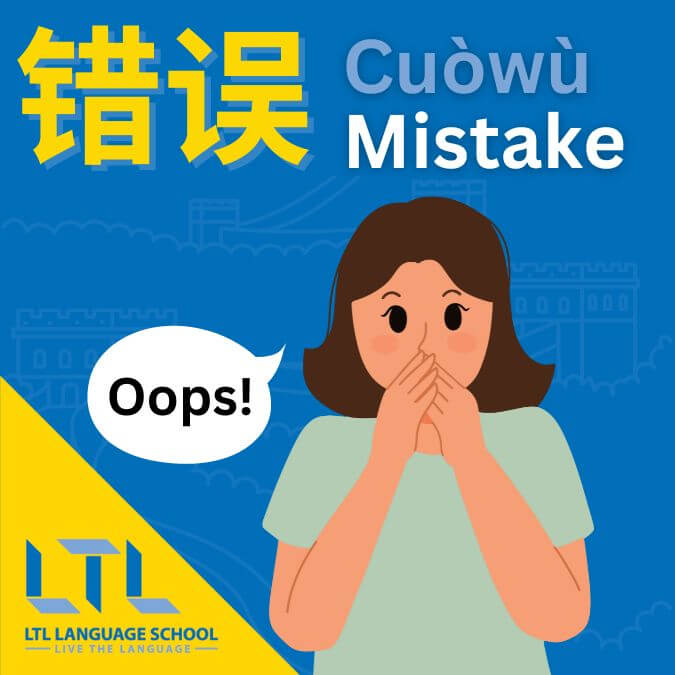Five Things I Learned from Conversations with the World’s Most Accomplished Chinese Learners
Lessons from Fluent Chinese Speakers || 5 Key Takeaways for Chinese Language Learners
Mischa Wilmers is a fluent Chinese speaker and educator from the UK who runs the blog and podcast I’m Learning Mandarin. He is also the co-founder of Mandarin Retreat an organisation that run immersive weekend trips and extended five day extended camps for Chinese learners based in Europe. In this series of blogs he offers his best insights and tips into how to improve your Chinese learning efficiency.
Over the last couple of years I’ve had the privilege of engaging in many conversations with some of the globe’s most accomplished Mandarin learners on my podcast, I’m Learning Mandarin.

I’ve gleaned invaluable insights that have enriched my understanding of language acquisition and helped me learn Chinese more efficiently.
In this article, I share five lessons I’ve gained from these exceptional learners.
I’ve also included the podcast episodes so you can listen first hand to the pros themselves.
Lessons From Fluent Chinese Speakers || Will Hart on Efficient Knowledge Retention
Lessons From Fluent Chinese Speakers || Professor Karen Chung on the Art of Mimicry
Lessons From Fluent Chinese Speakers || Benny Lewis on Embracing Mistakes and Speaking Early
Lessons From Fluent Chinese Speakers || Matt Vs Japan on Harnessing the Power of Input
Lessons From Fluent Chinese Speakers || Mandarin as a Gateway to Culture
Lessons From Fluent Chinese Speakers || FAQs
Lesson 1: Will Hart on Efficient Knowledge Retention
Will Hart is a medical student who achieved exceptional fluency in a mere year and a half while living in the UK during lockdown.

Through interviewing him I learned about the value of efficient knowledge retention.
When we first start speaking Chinese it’s inevitable that virtually everything we try and say will contain mistakes.
What made Will unlike other learners was that he developed a systematic approach for memorising and retaining corrections.
His method involved rigorous daily drilling of Anki flashcards, meticulously curated from corrections provided by his Chinese friends.
By combining this approach with daily immersion and communication with native speakers he was able to reach an extraordinary level faster than any other learner I’ve met.

4 Ways to Create an Immersive Learning Environment When Living Outside of China
Chinese Immersion at Home: How to Live the Language Without Living in China Mischa Wilmers is a fluent Chinese speaker and educator from the UK who runs the blog and podcast I’m Learning Mandarin. He is also the co-founder of Mandarin Retreat an organisation…
Lesson 2: Professor Karen Chung on the Art of Mimicry
NTU Professor of Phonetics Karen Chung’s taught me the importance of accurate mimicry.
In her efforts to closely emulate Taiwanese Mandarin speakers, she cultivated a technique called the “echo method.”
This method involves listening to a sentence, waiting a few seconds for it to ‘echo’ in our heads, before reproducing what we hear with heightened precision.
Karen’s approach has helped thousands of learners of different languages around the world develop an ear for mimicking foreign languages and improve the clarity of their speech.
During my interview with her she demonstrated the technique with me and I have subsequently used it to improve my own Chinese pronunciation.

42 Brilliant Chinese Podcasts to Improve Your Chinese Skills
Love listening to Chinese podcasts? We’ve got 42 we think you’ll love then. We cover all levels so there is something for everyone.
Lesson 3: Benny Lewis: on Embracing Mistakes and Speaking Early
Benny Lewis is a famous blogger and globetrotter whose projects and books have inspired millions to take up a new language.
Benny typically stays in each country for three months and attempts to learn the local language.
A decade ago he took on Mandarin in Taiwan, reaching a basic conversational level in three months by daring to make mistakes and developing a consistent speaking habit from early on.
Perhaps the most surprising thing to come out of our interview was that despite the fact that he known around the world for his ability to learn and speak multiple languages Benny does not primarily regard himself as a language learner.
“I have no respect for languages, I respect people,” he said. “Language is just a tool for communication.”
Lesson 4: Matt Vs Japan on Harnessing the Power of Input
Although strictly speaking he isn’t a Mandarin learner, Matt Vs Japan‘s story of near-native fluency in another East Asian language (Japanese) is also very compelling.
Matt learned Japanese while living in the US by using an input-heavy approach.
He created an immersive environment for himself in which he consumed Japanese content at every opportunity. This included reading novels, watching anime and listening to podcasts.
By exposing himself to thousands of hours of the language over several years, Matt eventually reached an incredible level of spoken Japanese.
He argues that spending a lot of time immersing in content you enjoy is the key to learning any language, a message which can easily be applied to learning Mandarin.
Lesson 5: Mandarin as a Gateway to Culture

Benjamin Zephaniah is one of the UK’s most celebrated poets.
However, not many people know that he’s also a keen Mandarin learner, having studied the language for more than a decade.
When I interviewed him he described how learning Mandarin had enabled him to deepen his awareness Chinese culture, in particular martial arts.
His accounts of engaging with locals in remote villages and studying under a Tai Chi master underscored the profound cultural connections that proficiency in Mandarin can unlock.
Benjamin was especially keen to stress he importance of learning languages to bridge cultures at a time of heightened political divisions.

Chinese New Year 🧧 Dos and Don’ts You Need To Know About
Chinese New Year Do’s and Don’ts, superstitions and taboos. There are some things you should really know if you plan on spending Chinese New Year in China!
Lessons From Fluent Chinese Speakers || FAQs
Where should a beginner start with learning Chinese?
It’s best to start with learning the pronunciation system of Chinese, which is significantly different to that of English.
In order to do this, it’s important to learn both pinyin (Chinese written with English letters) and the four tones.
To learn Chinese 24/7 from certified, native speakers, make sure to check out our Flexi Classes platform.
What additional materials can I use apart from textbooks to learn Chinese?
These days, there’s plenty of ways to learn Chinese outside textbooks and classrooms!
Try listening to Chinese language podcasts, using graded readers, watching Chinese movies, using a language exchange app, or even living with a Chinese family in a homestay experience in China!
What’s the most effective way to learn Chinese?
Different people have different learning styles and so we would always recommend trying out different methods to see what works best for you.
Some key takeaways from Chinese language learners in this blog post include not being afraid to make mistakes, immersing yourself in Chinese culture and closely mimicking the sounds and sentences of native speakers.
Where can I learn Mandarin Chinese online?
Regardless of your level or whether you’d like to study simplified or traditional characters, our Flexi Classes platform has got you covered. Book your first class today with our certified, experienced teachers to fast track your Chinese!
Want more from LTL?
If you wish to hear more from LTL Mandarin School why not join our mailing list?
We give plenty of handy information on learning Chinese, useful apps to learn the language and everything going on at our LTL schools.
Sign up below and become part of our ever-growing community.
BONUS | Learn Chinese with LTL in person. Our student community is growing by the week.


 Hi, my name is Sabatino! I am from Italy and I am a Student Advisor at LTL. Fancy coming to study with us in China?
Hi, my name is Sabatino! I am from Italy and I am a Student Advisor at LTL. Fancy coming to study with us in China?

